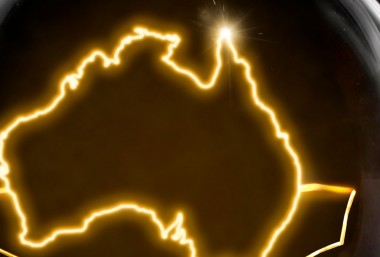On 7 October 2015 in D'Arcy v Myriad Genetics Inc, the High Court of Australia unanimously held that isolated nucleic acids, which encode a naturally occurring human protein, are not patentable inventions. The Court also expressly stated that, for the purposes of patentability, there is no distinction between DNA and cDNA. See our previous discussion of the decision here.
IP Australia has now published their proposed practice in light of the decision and invited comment. Many will be relieved to see that IP Australia proposes restricting the effect of the decision to subject matter directly considered in the case. This is in contrast to the USPTO's response to the corresponding decision of the US Supreme Court in Association for Molecular Pathology v. Myriad Genetics, Inc.
IP Australia's position is that the following subject matter is not patent eligible and claims will not be accepted for:
- naturally occurring (human or non-human) nucleic acid sequences encoding polypeptides or functional fragments thereof - either isolated or synthesised
- cDNA
- naturally occurring (human or non-human) coding RNA - either isolated or synthesised.
IP Australia proposes that the following subject matter remains patent eligible
- naturally occurring isolated regulatory DNA (eg, promoters, enhancers, inhibitors, intergenic DNA)
- isolated non-coding (eg, 'junk') DNA
- isolated non-coding RNA (eg, miRNA)
- naturally occurring isolated bacteria
- naturally occurring isolated virus
- isolated polypeptides
- synthesised/modified polypeptides
- isolated polyclonal antibodies
- chemical molecules purified from natural sources (eg, new chemical entities, antibiotics, small molecules)
- isolated cells
- isolated stem cells
- probes
- primers
- isolated interfering/inhibitory nucleic acids (eg, antisense, ribozymes)
- monoclonal antibodies
- fusion/chimeric nucleic acids
- transgenes comprising naturally occurring gene sequences
- vectors/microorganisms/animals/plants comprising a transgene.
IP Australia invites interested parties to comment on their proposed practice before 30 October 2015.
IP Australia's proposed response to Myriad could change if it receives comments indicating strong support for broader application of the case. Therefore, interested parties wishing to limit the impact of Myriad to the subject matter considered in the case, should respond with legal and other arguments.
In the meantime, IP Australia have advised that granted patents containing nucleic acid sequence claims will not be re-examined unless requested by a third party. Accepted applications containing nucleic acid sequence claims will be placed in abeyance until completion of the public consultation process when they may be reexamined.
Unexamined patent applications with nucleic acid sequence claims will sit in abeyance, as will examined applications on which responses have been filed (unless the deadline is within a month). Applicants facing imminent deadlines for applications containing nucleic acid sequence claims will be required to remove those claims to a divisional application before the deadline. If they do not, the application will lapse.
Please contact us if you have any questions regarding the impact of the decision on your patent portfolio, or if you would like us to make a submission on your behalf. Alternatively, you can make submissions directly to mdb-patents-consultation-group@ipaustralia.gov.au.
